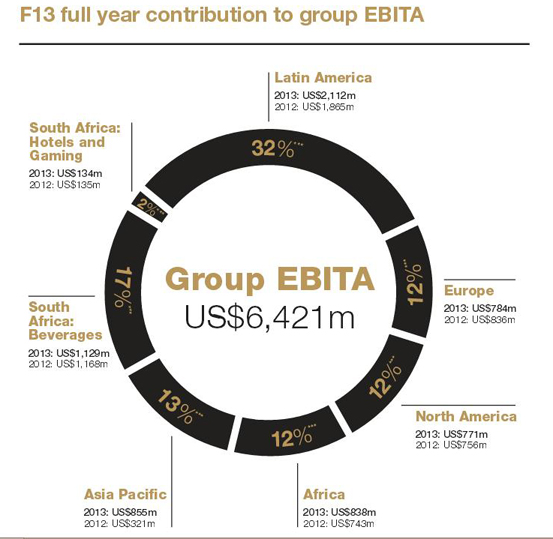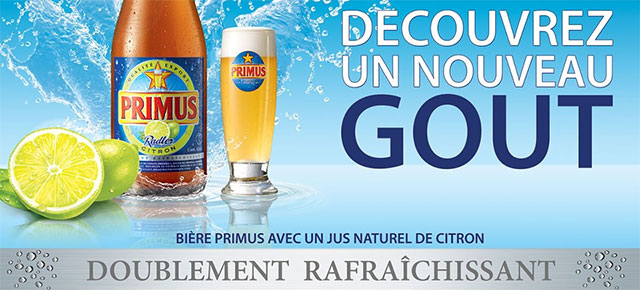Africa
Why have all the country's established brewers and upstarts asked Ethiopia's state-owned bank CBE for multi-billion loans, in the local currency birr (ETB), that is? This interesting – but perhaps minor – detail was brought to light recently by Ethiopia's lively blogosphere. Among the loan-seekers, Ethiopian sources say, are Heineken (which owns two breweries and builds a third), Diageo, Habesha, Raya, Zebidar and BGI.
Africa
If the blogosphere is right, an alcoholic bitter by the name of Alomo has been biting into brewers' sales. Originally from Ghana, the Jägermeister-clone was only introduced into Nigeria in 2010. Yet, it posted a booming 56 percent volume growth in 2012 according to Euromonitor because the herbal bitter allegedly "promotes vitality in men". I am sure readers will get the drift.
Africa
Kenyans rubbed their eyes when East African Breweries (EABL), in which Diageo owns a 51 percent stake, released its full year results (end June 2013) in August and posted a 38 percent drop in profit. That was worse than many had expected. And it came despite volume growth of 3 percent, net sales growth of 6 percent and 0.2 percent growth in operating profit before finance costs and exceptional items.
Africa
SABMiller, the world’s number two brewer, has come under fire from South Africa’s Competition Commission for discriminatory wholesale prices.
Africa
How will SABMiller fare without a political fixer par excellence like Cyril Ramaphosa, who decided not to seek re-election to SABMiller’s board of directors at the brewer’s up-coming Annual General Meeting on 25 July 2013?
Africa
That’s a new one to us: comparing a Radler to champagne. But this is Heineken’s marketing twist in the Democratic Republic of Congo (DRC). At the end of April 2013, the country’s beer market leader Bralima launched Primus Radler in the capital of Kinshasa. The 2 percent ABV Primus Radler made with lemon juice has been likened to a “véritable champagne congolais” – albeit packaged in what looks suspiciously like a 0.62 litre beer bottle.
Africa
Norman Adami, former South African MD of SABMiller would not do it. So the task fell to his successor Mauricio Leyva Arboleda: to honour their commitment to build a brewery in neighbouring Namibia.
Africa
The globally active DöhlerGroup is pleased to announce the acquisition of the Fruit Processing and Flavour Unit of Delta Aromatic (DELRO). DELRO, the Egyptian specialist for fruit and vegetable ingredients, becomes part of the DöhlerGroup and will play a major role as the production and service hub for the dynamic markets in Africa and the Middle East.
Africa
“Population growth plus GDP growth plus political stability equals an almost limitless rise in beer consumption.” For several years now, international brewers have used this simple yet memorable equation to sweet-talk analysts into believing that their investments in Africa would pay off and lucratively so. One word conspicuously absent from brewers’ soft soap has been “risk”. Heineken, SABMiller and Diageo, through words and deeds, have certainly succeeded in giving Africa a good reputation. But does this mean that the so-called “risks” in investing in Africa are more perception (read prejudice) than reality? Yet, what if risks become fact and affect industries adversely? Do these industries only have themselves to blame – like the extractors, notorious for their disregard of local concerns and the environmental impact of their commercial decisions? It would be foolish to downplay political risks in Africa. In their wider sense they range from worker strikes and sudden changes in taxation to recent events in Mali and Algeria. Political risks don’t discriminate. They just affect businesses in different ways.
Africa
That’s an interesting move. SABMiller got out of sorghum beer production in South Africa over a decade ago and now Diageo is getting into it. The world’s leading drinks company on 28 January 2013 said it will acquire a 50 percent interest in a joint venture, co-owned by India’s Vijay Mallya, for USD 36 million (EUR 26 million).




